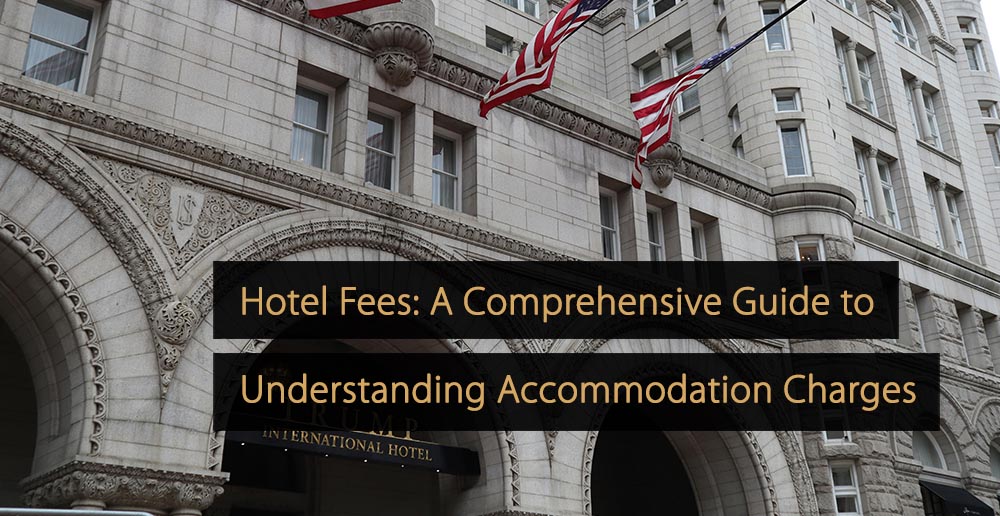Hotel investors can benefit from the potential for high yields, favorable tax rules, and access to hotel facilities while also diversifying their property portfolio. However, at the same time, it is sensible to look at possible disadvantages associated with investing in hotels too. This article lets you learn more about hotel investment opportunities and explore the main advantages and disadvantages.
Table of Contents:
- What is the Hotel Industry?
- Why Choose to Invest in Hotels?
- How Do Hotel Investors Measure the Success of a Hotel?
- Advantages of Being a Hotel Investor
- Disadvantages of Being a Hotel Investor
- Understanding Hotel Investments
What is the Hotel Industry?
Before making any decisions, hotel investors will need to have a clear hotel meaning or definition and an understanding of the wider hotel industry. A simple way to think about a hotel is as a property that provides paying customers with temporary accommodation, including a bed and other relevant facilities and services.
The hotel industry, meanwhile, forms part of the service industry, the hospitality industry, and the travel and tourism industry. The section focuses on lodgings, with most definitions including all forms of temporary guest accommodation, such as hotels, hostels, motels, inns, and bed and breakfasts.
In the article “Hotel Industry: Everything You Need to Know About Hotels!” you will learn more about what hotels are, what the hotel industry is, how it is defined, and what properties fall under this umbrella.
Why Choose to Invest in Hotels?
Next, it is worth exploring the numerous reasons for becoming a hotel investor. Hotels generally differ significantly from other investment types because there is a nightly battle to secure guests and receive money. This is not likely to be present with other forms of property, where leases may last months or even years.
However, this also provides some exciting opportunities for hotel investors because the amount of money guests are willing to pay for an overnight stay will also change based on various factors. This means there will be opportunities to earn more money at peak times of the year or when nearby events occur.
Of course, hotels allow investors to earn an income long-term. This can be highly appealing, whether for a supplementary or steady income into the usual retirement years. There is also often real potential to increase earnings by making small, positive changes to the property and the services provided.
How Do Hotel Investors Measure the Success of a Hotel?
Hotel investors must keep a keen eye on a hotel’s performance to ensure it runs successfully. To do this, there are several key performance indicators that you will need to focus on. Using these metrics, it becomes easier to identify issues and assist managers in adjusting hotel operations.
A good example of a hotel performance metric is the average daily rate (ADR), which measures the average income per paid occupied room over a defined period. Other examples include revenue per available room (RevPAR), calculated by dividing your total room revenue by the total number of rooms available. A similar metric, gross operating profit per available room, is calculated similarly but factors in all revenue sources rather than only room revenue.
In “The Most Used Revenue Management KPI’s for Hotel”, you can explore nine of the most significant key performance indicators for hotels so that your return on investment can be better understood.
Advantages of Being a Hotel Investor
Prospective investors need to develop an understanding of the various benefits that come with investment in a hotel. In the sections below, you can learn about the many positive sides of becoming a hotel investor:
High Potential Returns
The hotel industry is generally considered to be high risk and high reward, which means hotel investors that follow the right steps have the potential to benefit greatly from high returns. A well-managed hotel asset can deliver annual returns far exceeding those connected with many other real estate forms.
One of the reasons for this high yield potential is linked to how hotels operate. Essentially, at points when demand for hotel rooms increases, hotels can greatly increase prices and still attract guests.
A sensible hotel investor will either have experience within the hotel industry or access support from those who do. Assuming a strong hotel management team is in place, and the hotel itself ticks the usual boxes for a good acquisition, hotel investors can expect to reap significant financial rewards.
Cost Segregation Options
In certain countries, including the United States, hotel investors have the potential to benefit from cost segregation. A cost segregation study is available to property owners and real estate developers who meet certain criteria, and hotels and similar guest accommodation properties are often good candidates.
Cost segregation works by dividing the different aspects of property – including the land itself, the structure, decor, footpaths, plumbing, parking areas, and landscaping – and then using this to benefit from accelerated depreciation for some of those components. This can then have significant financial upsides for investors.
Cost segregation allows investors to capitalize on accelerating depreciation deductions, leading to substantial federal and state tax savings. Ultimately, this can mean more money staying in business.
Enjoy the Facilities Yourself
An underappreciated benefit connected to becoming a hotel investor is the opportunity to enjoy the hotel facilities and services you have invested in for yourself. Investing in a hotel means visiting the property and enjoying the same experience that hotel guests will experience.
This often means enjoying stays in an excellent location with great facilities, pleasant staff, access to a gym, a restaurant, a bar, and entertainment options. Depending on the hotel location or hotels you invest in, you may also benefit from great weather and exciting nearby attractions.
This is another example of how hotel investments differ from other property investments. If you invest in residential property and make money by renting it out, the benefits are almost entirely financial. However, hotel investments provide both economic benefits and an opportunity to experience the property yourself.
Capitalize on Tax Benefits
Property ownership, in general, can be a good investment regarding the tax benefits on offer. Aside from the aforementioned cost segregation strategy and accelerated depreciation, hotel investors can benefit from equity growth, structures and buildings allowance, land remediation relief, and a variety of other benefits.
Equity growth is among the most significant tax benefits, especially regarding investment recapitalization. Acquiring cash equity from a debt refinance is often possible without incurring income tax.
In many parts of the world, hotel investments are also exempt from stamp duty if the investment is under a certain amount, which can help make hotels more affordable than other property types.
Diversify an Investment Portfolio
Finally, one of the most appealing aspects of the hotel industry is its separation from the stock market and other real estate trends. This means that hotel investors can often diversify their property portfolio, which can offer protection if issues occur with other property investments.
Hotel performance and hotel trends are often entirely disconnected from the trends that impact other real estate investments. Instead, hotel performance is usually positively and negatively affected by different factors, including local events, transport links, the weather, and the quality of service.
This means that with the right circumstances and assuming the hotel is managed effectively, hotel investments can perform well even when other property investments suffer.
Disadvantages of Being a Hotel Investor
While hotel investors have the potential to benefit enormously from their investments, they are not completely risk-free or free from other issues. Below, you can learn about some of the possible disadvantages of hotel investments:
Dependence on Economy, Competition & Location
One possible disadvantage of becoming a hotel investor is the dependency that these investments have on the economy, as well as on the location of the property itself and the existence of nearby competition.
Most hotel guests will likely be people enjoying holidays, which requires people to have sufficient disposable income to spend on such luxuries. At times of economic hardship, hotels can experience a significant decline in the number of guests they can attract, and the prices guests are willing to pay.
The popularity of a hotel will also be hugely dependent on location. While certain areas are firmly established as tourist hotspots, even these locations can experience increases and decreases in popularity, which can be out of your control. Beyond this, there is also the possibility that a local competitor will emerge or an existing competitor will develop a more appealing offering, which may attract guests away from your hotel.
Risk of Over-Leveraged Capital
Many hotel investors are tempted to borrow large amounts of money for their investments, as this can open up the potential to generate higher returns. However, this also brings a risk of the hotel becoming over-leveraged.
A hotel is deemed over-leveraged if debt mounts up, so repayments, interest payments, and hotel operating expenses cannot be covered. The more you borrow, the higher your interest rates are likely, creating an additional risk of experiencing an investment failure.
If a hotel starts to encounter operating issues, which a wide range of external factors can cause – many of which can be challenging to predict or control – you will want to have money to put into your asset. This will not be possible if you become over-leveraged and likely lose your hotel property.
Reliance on Effective Management & Operations
Another possible issue that hotel investors will need to contend with is the reliance that hotel investments have on effective hotel management and good decision-making about hotel operations.
In particular, there needs to be a strong focus on staying tuned to broader trends within the industry and investing sufficiently in the latest hotel technology. If a property falls behind rivals in terms of the software and technology used by staff, or the technology provided to guests, those rivals will likely reap the rewards. After all, guests will prefer a property that offers a smooth, modern, frictionless experience.
Hotel investors must always remember that a hotel’s property component is only one factor. Hotels will generally succeed or fail based on their service quality and the strategic decisions made. This means it is imperative to have a great management team and all hotel departments pulling in the same direction.
Video: Top 10 Hotel Management Tips for Managers
Reliance on People and Culture
Finally, following the previous point, hotel investors can succeed or fail based on whether or not they acquire support from the right people and take steps to implement the right kind of hotel culture.
Unless you have a team in place and significant experience, you will need help from a hotel management company. Selecting the right company can make or break an investment, and a balance needs to be struck between finding the right company and ensuring the hotel remains profitable after paying them. This can be a delicate balance, as the best management companies will usually charge more. Hotel profits need to be sufficient to overcome this.
On top of this, the overall company culture within a hotel can have a major influence on success or failure. Hotels need to adopt a culture that places guests’ needs first and focuses on genuine service. If this kind of culture is not present, it is unlikely that a hotel will become a positive investment over the longer term.
Understanding Hotel Investments
Before making any final decisions, hotel investors should try to understand the hotel industry and what these investments offer as deeply as possible. This includes learning about different investment opportunities, such as crowdfunding, outright purchases, etc.
In the article “Hotel Investments: How & Why You Should Start Investing in Hotels”, you can learn everything you need to know about hotel investment opportunities, why so many people opt to invest in this particular area, and some of the main ways you can take the next step and become a hotel investor.
Hotel investors can benefit enormously from their investment due to the possibility of high returns, the opportunity to capitalize on favorable tax rules, and the ability to diversify a property portfolio. However, it is also essential to be aware of potential drawbacks, like dependence on the economy and reliance on hotel management. This can allow you to mitigate risks and take strategic steps to ensure your investment pays off.
More Tips to Grow Your Business
Revfine.com is the leading knowledge platform for the hospitality and travel industry. Professionals use our insights, strategies, and actionable tips to get inspired, optimize revenue, innovate processes, and improve customer experience.Explore expert advice on management, marketing, revenue management, operations, software, and technology in our dedicated Hotel, Hospitality, and Travel & Tourism categories.
This article is written by:
Hi, I am Martijn Barten, founder of Revfine.com. With 20 years of experience in the hospitality industry, I specialize in optimizing revenue by combining revenue management with marketing strategies. I have successfully developed, implemented, and managed revenue management and marketing strategies for individual properties and multi-property portfolios.









Leave A Comment